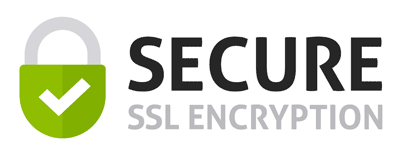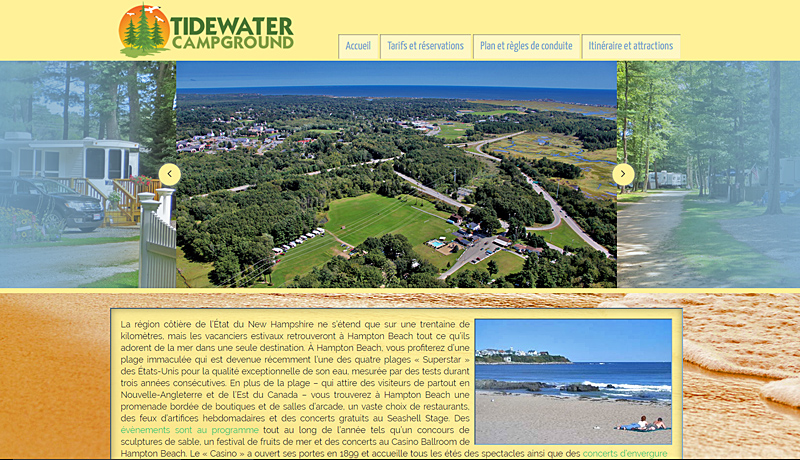 |
 |
 |
|
May 18, 2017
|
 |
|
Pre-Summer Newsletter
|
|
|
|
Following up on snowfall at high
elevations in Northern New
England last weekend, much of
the East Coast where we are
based is facing record-breaking
summer heat this week. There is
no doubt that summer is coming,
with Memorial Day weekend less
than two weeks away. We were
pleased to meet with many old
and new clients at recent trade
events in New Hampshire and
Colorado, in several instances
having the opportunity to actually
meet clients face-to-face for
the first time. Whether you have
been one of our clients for 25
years or longer, or if you are
yet to work with Pelland
Advertising, we hope that the
content in this newsletter will
be useful, timely in nature, and
helpful in the day to day
operation of your business.
|
|
|
 |
|
|
Google and SSL

|
|
|
|
Up until recently, SSL was
generally only used on
e-commerce sites that were
asking customers to enter secure
personal information such as
credit card numbers, but the
rules of the game are changing.
As of late January 2017, Google
and its Chrome browser now show
sites that are not running SSL
as not secure. Coming in late
October, with the scheduled
release of Chrome 62, the
display of expanded warnings
will begin if sites are not
running SSL and are gathering any
sort of personal information.
Browsers other than Chrome are
expected to follow suit. This
warning will apply to sites that
require a password or sites that
use any type of form to gather
personal information, including
the reservation request forms
that are commonly used on
campground and lodging websites.
If your site is already running
SSL and shows the https
protocol, you are fine.
If your site is hosted by
Pelland Advertising, is not
running SSL but is gathering any
type of personal information,
Pelland Advertising will be
migrating the site to SSL and
https in the coming weeks at
no charge to you. Any other
sites that we host will be
included in a second tier of
migration. This is just one more
example of our commitment to our
clients and doing everything
possible to enhance their
websites in the eyes of Google.
Back in 2014, Google announced
that SSL was one of its
so-called ranking signals that
influences search engine
placement, in itself an
incentive to switch. More
recently, studies have shown
that sites with SSL load faster
than the same sites without SSL.
If we host your site, nothing
needs to be done at your end,
but we will be contacting you
soon to notify you about the
free upgrade.
|
|
|
 |
|
|
|
The Internet Makes
Headline News
|
|
|
|
When the Internet is the lead
story on the evening news, it is
usually not a good thing. Over
the past week, the big news
story has been about the
WannaCry ransomware attack. As
you have probably heard, this
attack originated with e-mails
that were sent to computers
worldwide. Companies and
individuals that are running
outdated Microsoft Windows
operating systems such as
Windows XP were highly
vulnerable, as was any computer
that had not been updated since
March 2017, when Microsoft
discovered a vulnerability and
issued patches for all currently
supported operating systems.
Since then, Microsoft has even
taken the “highly unusual” measure of
issuing patches for earlier
operating systems that are
otherwise no longer supported.
The vulnerability had been
uncovered by the U.S. National
Security Agency (NSA) some 5
years ago, with their
programmers hacking a way to
exploit that vulnerability,
naming that hack EternalBlue.
Unfortunately, the NSA itself
was hacked, and that hack was
widely shared amongst
cybercriminals who combined it
with a distribution network
based upon an e-mail worm, and
WannaCry was born.

The victims of the ransomware
are located around the globe,
including major companies and
organizations such as the
British National Health Service,
Spanish telecommunications giant
Telefonica, and FedEx. The
countries that were most highly
impacted included Russia, China,
and other countries that are
notorious for the use of pirated
software (which, in this case,
is not updated by Microsoft). Imagine
your business being disrupted by
a ransomware attack, along with
the potentially disastrous
implications.
It could still
impact you. According to
an article
in The Wall Street Journal on
March 17, 2017, a new attack
named Adylkuzz is already underway. Rather than holding your computer hostage, this attack will slow down your system while it hijacks processing power to accumulate a digital currency known as Monero. As if that is not enough, a hacking group that calls itself Shadow Brokers has promised to unleash a new
cyber attack in June that would target Windows 10, routers, browsers, and even smartphones
Follow these steps
to protect your computers:
-
If your computers are
running Windows 10, they
have not been affected, at
least so far. If
you are running an older
operating system, this is an
argument in favor of
updating to the newest
version of Windows.
-
If
your computers are running
Windows Vista, Windows 7, or
Windows 8.1, run Windows
Update on your computers
immediately.
-
If your computers are
running Windows XP,
Windows Server 2003, or
Windows 8,
run the patches that are
available from Microsoft.
-
Run the latest, updated
version of a robust security
software option on all of
your computers. Both Avast
and Kaspersky were capable
of stopping the WannaCry
ransomware even on an
otherwise unprotected
system.
-
Back up your data to an
external source, such as
network attached storage
(NAS) or a cloud-based
backup solution. In the
event that you become a
victim, you should be able
to restore your system to
its pre-attack state.
-
Limit the access to e-mail
by your staff members, and
instruct them to avoid
opening e-mail attachments.
-
Needless to say, never run
pirated software!
The “Google Docs” phishing scam that proliferated in e-mails on May 4, 2017, said to be the most effective e-mail worm since the “I Love You” virus that caused havoc back in 2000,
could very well have been the
launchpad for the WannaCry
ransomware attack. The scam was effective because it looked legitimate (it is so easy to copy the appearance of a legitimate website!), came from somebody you knew (rather than some random name chosen by a hacker in Belarus), and was spread through the type of shared online document that we have come to accept as routine. Even cautious recipients who would never open an e-mail attachment from a stranger thought that it was safe to download the same sort of document that appeared to have been shared via a cloud service by a known sender.
This story is
unfolding literally as fast as it can be
reported.
The bottom line is to run the
latest operating system and
anti-virus software and to
exercise an extreme degree of
caution.
|
|
|
 |
|
|
Parlez-vous français? / ¿Hablas español?

|
|
|
|
A prospective client recently
asked us about foreign language
versions of websites, after
somebody had incorrectly
suggested that sites using the
Google Translate widget would be
penalized in search rankings.
The fact is that Google is NOT
penalizing sites that use its
translate widget, which is
effective enough to allow
non-English speaking visitors to
understand the content of your
site. What Google is penalizing are sites that have foreign-language versions that have used an automated translation tool (such as Google translate) to then copy and paste text into foreign-language versions of their pages. Even though Google Translate is good enough for somebody to get a fairly acceptable translation from the English language on a website, that translation is NOT suitable in quality to serve as the basis for dedicated page content. This is just as bad as having an English language version of a site that is full of spelling, grammatical and punctuation errors. It will hurt you with both search engines and human beings who read the content.
If a significant portion of a business’s customer base is made up of people who speak specific languages (such as Spanish or French), the best approach is to have the site professionally translated by a human translator. Several of our campground clients have French language versions of their websites because they are located in areas that historically get a significant portion of their business from the French Canadian market. (These areas include Old Orchard Beach, Maine; Hampton Beach, New Hampshire; Cape Cod, Massachusetts; the Wildwoods and Cape May, in New Jersey; Ocean City, Maryland; and Virginia Beach, Virginia.) We have had clients with French language websites who have told me that they have had guests at the time of registration tell them that they chose that specific campground because of the quality of the translation. It was demonstrating that the clients are not simply paying lip service to the Canadian market, but have actually demonstrated their commitment to serving their French Canadian guests. Our translators
are human beings based in
Montreal who understand camping.
Here are links to two of our
client websites that are
dedicated to reaching out to
their sizable French Canadian
clienteles:
Cape Cod Campresort
East Falmouth, Massachusetts
http://capecampresort.com/index-fr.html
Tidewater Campground
Hampton, New Hampshire
http://tidewatercampgroundnh.com/index-fr.html

If you are interested in a
dedicated foreign-language
version of your website, contact
us. A foreign language version
of your site will send a very
positive message to your French-
or Spanish-speaking clientele while
enhancing your business by
increasing its international
geographic presence.
Click here to read our blog post
on the subject of foreign
language markets from back in
2013. We are not newcomers
when it comes to marketing to
guests who prefer to communicate
in a language other than
English!
|
|
|
 |
|
|
|
Security and the Social
Media
|
|
|
|
On the topic of Internet
security, think twice about
divulging your personal
information on Facebook or other
social media sites. I don’t know how many times I have seen friends on Facebook post a complete set of answers to 50 personal questions such as the name of their elementary school, their first phone number, name of their eldest sibling, and so forth. Whenever I see this being treated as a harmless and fun exercise, I cannot help but ask myself, “Are you insane?” If any of these questions and answers seems familiar, it is because they are among the same ones that are used as security tests on your online banking or an e-commerce site when you reset a password. Yes, the name of your first pet can lead to the theft of your identity.
Think twice before you
participate in a survey,
especially an online survey. The
only thing for certain is that
the personal information that
you provide is being compiled by
somebody. If you are lucky, it
is only being compiled for
marketing purposes. Your
personal privacy is not being
violated when you are the one
who has disclosed your own
private information.
Click here to read my latest
blog post on this topic.
|
|
|
 |
|
|
|
Reputation Management Is Mission Critical
|
|
|
 |
|
|
|
Understanding the importance of
reputation management, we
invited Brian Searl, the CEO of
Insider Perks, to provide a
brief explanation of the service
that his company provides.
Brian’s company will keep an eye
on your reviews, monitoring
sites like TripAdvisor,
Facebook, Google, Yelp and RV
Park Reviews. They will then
respond to those reviews on your
behalf, keeping you directly
involved in a positive
conversation.
In his words, “When campground owners think about their online reputation, often the first and only thing that comes to mind are their reviews. To be sure, that is the most critical piece to the puzzle and monitoring as well as engaging with the guests who leave you good and bad reviews is truly vital to your success. Most campground owners stop there, though, and do not consider the other impacts on their business.
“An owner once presented me with some stunning statistics he had gathered about one of his properties. A study that showed he lost nearly $15,000 in revenue as the result of a TripAdvisor review. One that stated incorrectly that he had bed bugs and one that sat on the first page of TripAdvisor for weeks. Had we been working with him at the time, we could have negated much of this for him.
Another cautionary tale comes from the exit strategy. A brand new owner who had purchased a park we had worked with for years told me, in a very frank conversation immediately after closing, that they would have never bought the park had it not been for our review responses. The park in question had customer service issues and without our work he would have considered them too big to overcome.
“Your reputation means so much to your success and allowing someone with expertise in the campground industry to help you manage it is just as vital. Insider Perks can help you respond to your reviews, but we can also help in dozens of different ways that have yet to cross your mind.”
Click here to begin a free
30-day trial.
|
|
|
 |
|
|
|
That’s it for this edition of
the Pelland Advertising
newsletter. Thanks for taking
the time out of your busy day to
read it. Feel free to share our
newsletter with your colleagues
and to contact us with
suggestions for future content.
We are always here to listen ...
and to be of assistance. Thanks!
|
|
 |
 |
|
 |
|
© Pelland Advertising • 25 Depot Road • Haydenville, MA 01039 • (413) 268-0100 • Fax (413) 268-0173 • Toll-Free 1 800 848-0501 |
 |
|

